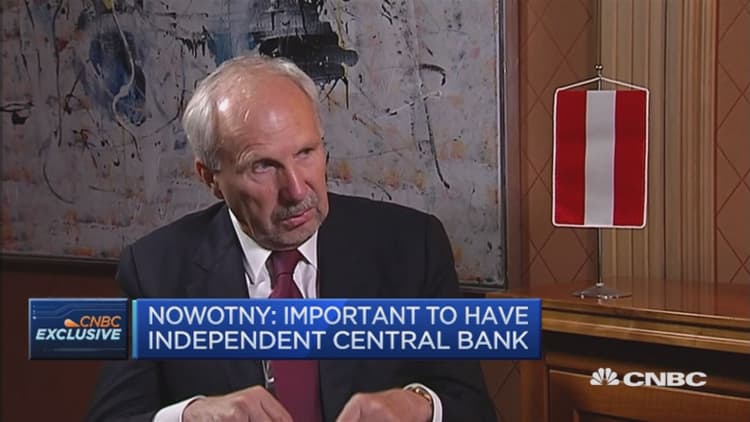
200 years ago Austria sought to repair finances battered by the Napoleonic wars.
The solution was a relatively new phenomenon known as an independent central bank, this time put together by private shareholders including the composer Ludwig van Beethoven.
This year the Oesterreichische Nationalbank celebrates its bi-centennial and Governor Ewald Nowotny outlined to CNBC what history has taught him.
"The first big lesson is nothing is as horrible both on the human side and the economic side as war. The Napoleonic war, the first and second world wars all had an extremely negative effect on the monetary system."
Nowotny who is also a member of the European Central Bank's governing council, also highlighted the need for central banks to be left to decide policy without interference.
"Both in good times and bad times, it is important to have an independent central bank. The whole monetary system has to be built on trust."
"And so to have this independence is a very important element of trust in the system," he said Thursday.
Nowotny said he was closely following criticism of the ECB from within Germany which attacks the European Central Bank policy for allegedly fuelling populism.
"Germany is very important as the EU's biggest economy. Even if there are a lot of critical voices you have to take them seriously.
But Nowotny said 'compromise' is not a word that central bank governors should aim for.
"I think in monetary policy it can't be about compromise. I think a central bank is convinced she must do something, can't compromise. We have to do our thing."
Nowtony described the ECB as the most independent central bank in the world as national governments could not change its laws.
ECB president Mario Draghi has used the Austrian central bank's bi-centennial to reinforce the importance of the central bank.
"In the two centuries since then, the cost of not delivering price stability has been painfully displayed. This is why most modern central banks have price stability mandates.
"In the ECB's case, our aim is to keep inflation below but close to 2 percent over the medium term. Today, this means raising inflation back towards 2 percent. And the series of measures we have adopted in recent years – bringing policy rates into negative territory, engaging in large-scale asset purchases, and providing banks with long-term refinancing on conditional terms – are geared exactly to achieving that," he said in a speech Thursday.


